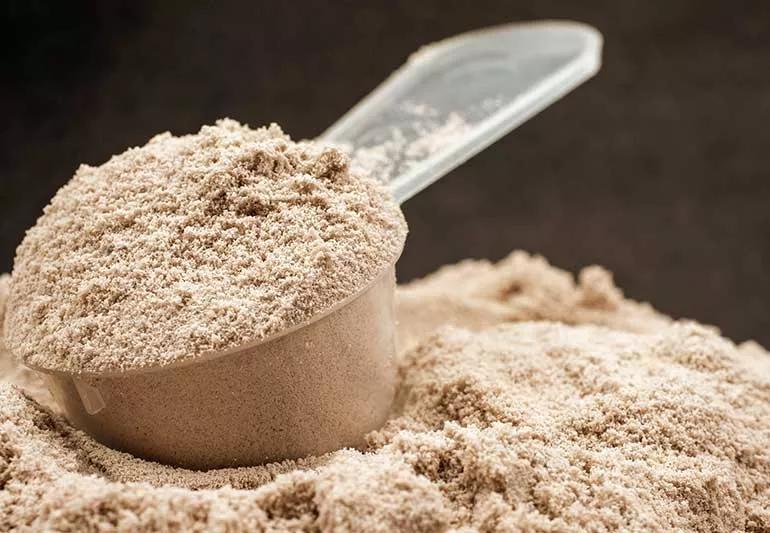It’s nutritious, offers fiber, antioxidants and protein, and is good for food sensitivities

Image content: This image is available to view online.
View image online (https://assets.clevelandclinic.org/transform/5912d44c-c4c7-4ca3-bc65-c4597780a614/Brown-Rice-Protein-Powder-1062901980-770x533-1_jpg)
brown rice powder with scoop
“Protein” probably isn’t the first thing that comes to mind when you think of brown rice. Most people think of brown rice as a carb (although a healthy one). But you might be surprised to learn that brown rice is more than just a whole grain. It also has a significant amount of protein.
Advertisement
Cleveland Clinic is a non-profit academic medical center. Advertising on our site helps support our mission. We do not endorse non-Cleveland Clinic products or services. Policy
Brown rice protein powder isn’t as well-known as whey, soy, casein or even pea protein powder, but it offers some notable benefits. “And it’s a good option if you have food allergies or can’t tolerate other types of protein powder,” says registered dietitian Kayla Kopp, RD, LD.
One cup of cooked brown rice has about 5.5 grams of protein. That’s about 10% of the protein a healthy adult weighing about 140 pounds should eat daily, according to the U.S. Department of Agriculture (USDA).
A complete protein supplies all nine essential amino acids, the building blocks of proteins. Your body can’t make these amino acids. They’re called “essential” because you must get them from food.
The protein in brown rice isn’t a complete protein because it doesn’t provide all the essential amino acids. But Kopp says that as long as you eat a variety of healthy foods, you should get enough of the nine essential amino acids.
So, is brown rice protein powder as good as alternatives when it comes to amino acid content? Yes, according to a study comparing brown rice, soy and whey proteins. The researchers analyzed the amino acids each protein provided. They found that brown rice protein is an acceptable substitute for soy or whey protein.
Advertisement
So, what does brown rice protein have to offer? Here are some of its benefits:
There aren’t any known harmful side effects of brown rice protein. “However, a diet with too much protein can be harmful in some cases,” notes Kopp.
This is because eating too much protein over the long term can actually damage your kidneys. The recommended daily protein intake is 0.8 to 1 gram of protein per 1 kilogram (about 2.2 pounds) of body weight. If you weigh 165 pounds (75 kilos), that’s about 60 to 75 grams of protein. If you’re active or trying to build muscle, you may want to eat a bit more than this. You can work with a registered dietitian to determine your specific protein needs.
Trying to decide between brown rice protein and pea protein? Here are some things you may want to consider:
Advertisement
Other protein powder options include:
Protein powders provide a quick, convenient way to get a nutrition boost, says Kopp. There are endless ways to customize them in tasty smoothies. Just blend the powder of your choice with a combination of fruits, veggies, yogurt, nuts, seeds or spices.
Advertisement

Sign up for our Health Essentials emails for expert guidance on nutrition, fitness, sleep, skin care and more.
Learn more about our editorial process.
Advertisement
Pick bell peppers to help fight cancer, memory decline and joint pain
The tropical fruit is a good source of antioxidants and vitamin C
High amounts of cholesterol and saturated fat in red meat may be linked to heart disease
The leaves and pods from this tree are rich in essential nutrients
This starchy root vegetable is a staple in many global cuisines — but it has to be prepared correctly, or it can cause serious concerns
These delicate green sprouts can give you an extra dose of vitamin K and other nutrients — but they’re not safe for everyone
Edamame, lentils and chicken breast are good sources of protein
Eating this root vegetable can help support your eye, heart and brain health
Prioritize your health by managing stress, strengthening your social connections and getting quality sleep
Bolsters, blankets, pillows and blocks can offer extra support, stability and comfort
Allergies, postnasal drip, asthma or reflux could be to blame for a cough that won’t quit